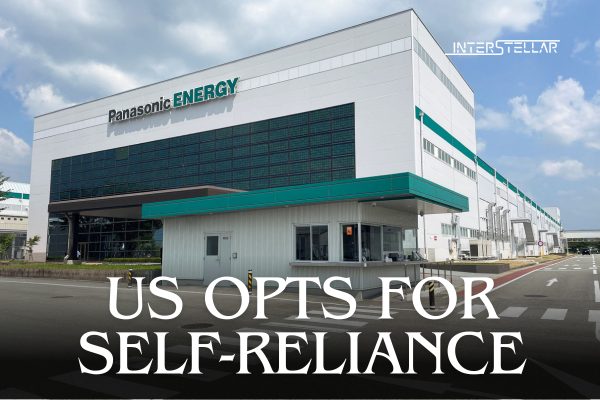Panasonic Energy Targets Reduced Dependence on China for U.S. EV Battery Supply
Panasonic Energy, a Tesla supplier, has prioritised eliminating supply-chain reliance on China for electric vehicle (EV) batteries made in the United States. Allan Swan, President of Panasonic Energy of North America, called this shift the company’s “No.1 objective” during an interview at the CES trade show in Las Vegas.
This move aligns with challenges posed by US trade policies. Former President Donald Trump’s tariff threats on Chinese imports had previously pushed global companies to reevaluate their manufacturing and supply strategies.
Diversifying the Battery Supply Chain
Panasonic Energy, a division of the Japanese electronics giant Panasonic, currently sources some raw materials from China. Swan explained that while Chinese supplies are limited, the company has accelerated efforts to eliminate this dependency. The majority of Panasonic’s raw materials come from international suppliers, including Canada.
To meet its targets, Panasonic Energy is employing a “three-pronged attack”:
- Partnering with U.S. Suppliers: The company is securing deals with domestic suppliers to strengthen its American supply chain.
- Encouraging International Investments: Panasonic is assisting Japanese and Korean suppliers in establishing U.S. operations.
- Tapping Existing U.S. Players: The company is collaborating with businesses already active in the United States.
“We’ve set ambitious goals to build a robust American supply chain,” Swan stated, reflecting the company’s commitment to enhancing local production capabilities.
Expansion and Impact on Industry
Panasonic Energy operates a battery factory in Nevada and is set to open a second plant in Kansas this year. This expansion is part of its broader strategy to reduce risks tied to international trade tensions. The company’s plans align with growing concerns among Japanese manufacturers about U.S. trade policies.
Automotive giants such as Nissan and Honda have also expressed concerns over tariffs that could impact production in Mexico, a significant hub for the U.S. market. Heavy machinery maker Komatsu highlighted potential disruptions from a U.S.-Canada trade conflict, underscoring the widespread uncertainties surrounding trade policies.
As Panasonic Energy advances its plans, it remains focused on bolstering local supply chains while mitigating global trade risks.
With inputs from Reuters





